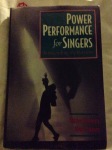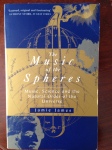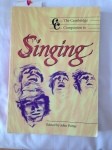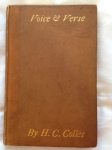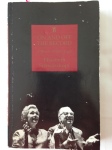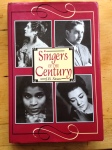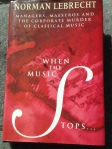Simon Rattle – The Making of a Conductor – by Nicholas Kenyon
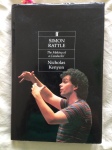
Simon Rattle – The Making of a Conductor by Nicholas Kenyon
I wish I could say I had a master plan in the order of the books I’ve been reading, but I haven’t, and yet, there seems to be a distinct pattern forward. This book ends at 1987 and while some of the books I’ve read have gone beyond the timing, there is still a movement forward – a way forward. As I’ve read time and time again, in this series of books, the classical music industry is struggling and it has big competition – sports, TV, Film, Gaming, Internet, etc. Who wants to go to an art form, which quite frankly, just seems to constantly stare at its own belly button.
So what has this to do with this book, well, I feel, Simon Rattle has helped in his small way and in this period of time in his life, as I believe things are quite different for him now, that he helped to shack up those belly button starer to start to see what is really going on and how it can be done differently. I am not saying that everything he did at this time is right and accurate and all musicians can do the same, but there is a sense of finding the confidence and strength to work at it, believe in your instincts and judgements – where they work or not.
I enjoyed it, which surprised me, as I knew very little about this man before reading this book, but it’s quite something to read how the pegs all fell into place and he had the courage to stick to what he believed. Unlike the author, I do feel he was lucky too! I am a firm believer that luck or destiny is involved when people, so called, make it and there was a lot of that in this story of Simon Rattle – why not, I believe in the saying ‘we make our own luck’ and I believe we are all lucky in our own ways.
I wanted to find out where Simon Rattle is now, not surprising he went to Germany and has worked there for a long time. Soon, he will move on again, maybe retirement, because he can afford to sit back and enjoy it or maybe, it’ll be America and LA at long last. I don’t feel London will ever hold for him what makes him tick – that city is still a bit too much about the belly button staring. A quote from Simon in the book about this:
Interviewer: “What about the problems like whether to follow the metronome marks?”
Simon: “These things are all just dogmas: the dogma of following the metronome marks, the dogma of the squeezed note, the dogma of borrowing this way or that. They’re too rigid, and if you think those things will provide you with answers about how to do the piece, you’re wrong. But I think if you rehearse a very small part of the piece, as you saw us doing in those early sectionals, and insist on certain things, a certain approach to phrasing and so on, then with intelligent musicians it will spread over the whole piece. So without sounding pretentious the thing is to get a microcosmic approach to detail which actually creates a macro-cosmic approach to the while symphony.
You need gradually to build it up: like running – I used to run, believe it or not – you don’t go first for the full distance, unless you’re an idiot; you build up gradually. That’s what I hate about an orchestra where you’re given an overall view to start with. You can’t unpick it. And in London you rarely have time to unpick it anyway. I believe in building up from the very smallest bricks and making performances like that, and the nearer we get to the performance the more I want to be performing.
I find I am not good at letting things go. I mean, God, as an English conductor you really ought to be, because that’s what you expect from the players: leave it to us, and it will be fine. With the London orchestras you can get a solid level of performance, but it’s so predictable. I find that unless I’ve built it up gradually, and have a certain amount of structural order, then I don’t have enough rigour to give me the freedom I need.”
